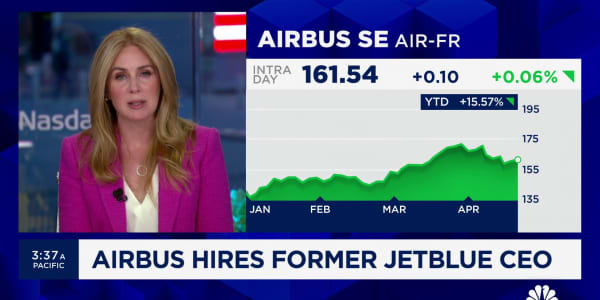Recapping the day's news and newsmakers through the lens of CNBC.
Notes:
Who'd have thought 30 or 40 years ago that in 2013 we'd still be seeing stories about the "first woman to...."? But we are. General Motors today named Mary Barra as its first female CEO. Barra, 51, is a three-decade GM vet who already was the highest-ranking woman in the U.S. auto industry. She currently serves as executive vice president of global product development, and will take over Jan. 15 from Dan Akerson, who is leaving to be with his wife, who has cancer.
The government has just finished selling the last of its shares in the automaker, which is recovering nicely from its crisis a few years ago. Barra is known for pressing GM to stop making "crappy cars" and to streamline its product lines around the world.
Quote:
"This is the beginning of what could be a big dividend cycle. GM has done so many right things. They have so much momentum around the globe and in the United States."—CNBC's Jim Cramer
License to export
Notes:
Exporting crude oil from the U.S. to Canada sounds like, well, taking coal to Newcastle. But it happens, even though Canada is the top supplier of crude to the U.S. Not only does it happen, business is booming. In the latest fiscal year, the U.S. government issued 103 export licenses to ship crude to other countries, all but about a dozen of them for shipments to Canada. The figure was 66 in 2012.
The reason is huge production gains due to the shale boom in states like Texas, coupled with restrictions on coastal tanker traffic to U.S. refineries. Light Louisiana Sweetcrude sells at a discount from Brent, the global benchmark, making U.S. crude attractive in Eastern Canada, which is far from the country's own oil fields.
Lululemon's latest pose
Notes:
In our once-every-so-often series on how not to handle a PR problem, we come again to Lululemon Athletica. As you may recall, the Vancouver maker of high-end yoga clothes is at odds with shareholders who say the firm tried to hide the fact its pants became transparent when wearers bent over. Now Lulu has fired its founder and chairman, Chip Wilson, for offending another group of stakeholders, the customers.
Wilson said, in effect, that unhappy customers had only themselves to blame. That's quite a no-no in an age when retailers are so eager to please they'll take back any product no questions asked.
Wilson, who will keep a seat on the board, was commenting on the tendency of Lulu's pants to pill, which is when little balls of fabric form on the surface due to friction. On a purely scientific basis Wilson may have been on solid ground. But putting the spotlight in on your customers' curvy thighs is hardly the way to win their hearts.
Quote:
"Frankly some women's bodies just don't actually work for [the pants]. It's really about the rubbing through the thighs, how much pressure is there over a period of time, how much they use it."—Wilson
Gaining comfort, an inch at a time
Notes:
If your cost-conscious firm has forced you to fly coach, you know that some of those stress-position seats could work well for enhanced interrogation. But, in fact, some are roomier than others. You just have to know how to find them.
One way is to use a site like SeatGuru.com, which can guide you through the pros and cons of specific seats on specific models of aircraft used by specific airlines.
Also note that the seats in the last few rows may be narrower than others, to accommodate the taper in the tail. Seats in the exit row typically have more legroom than others, but seats in the row ahead of the exit row often don't fully recline. If you're not happy with the seat you got when you reserved your flight, keep looking, as better seats may free up when other passengers cancel, upgrade or jockey around. And if all else fails, you can pay a premium for a better perch.
—By Jeff Brown, Special to CNBC.com




